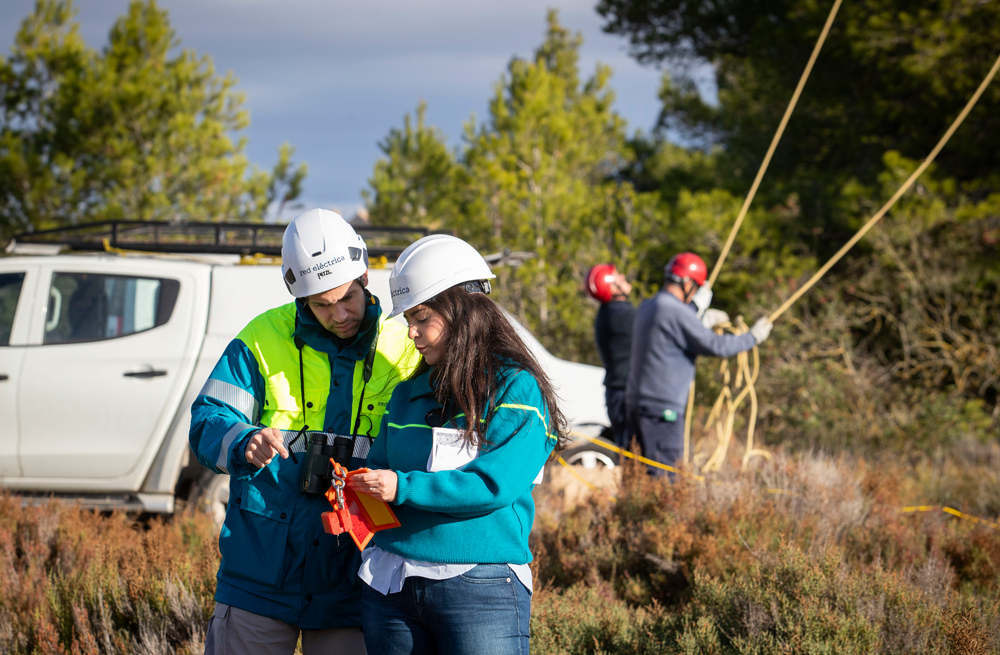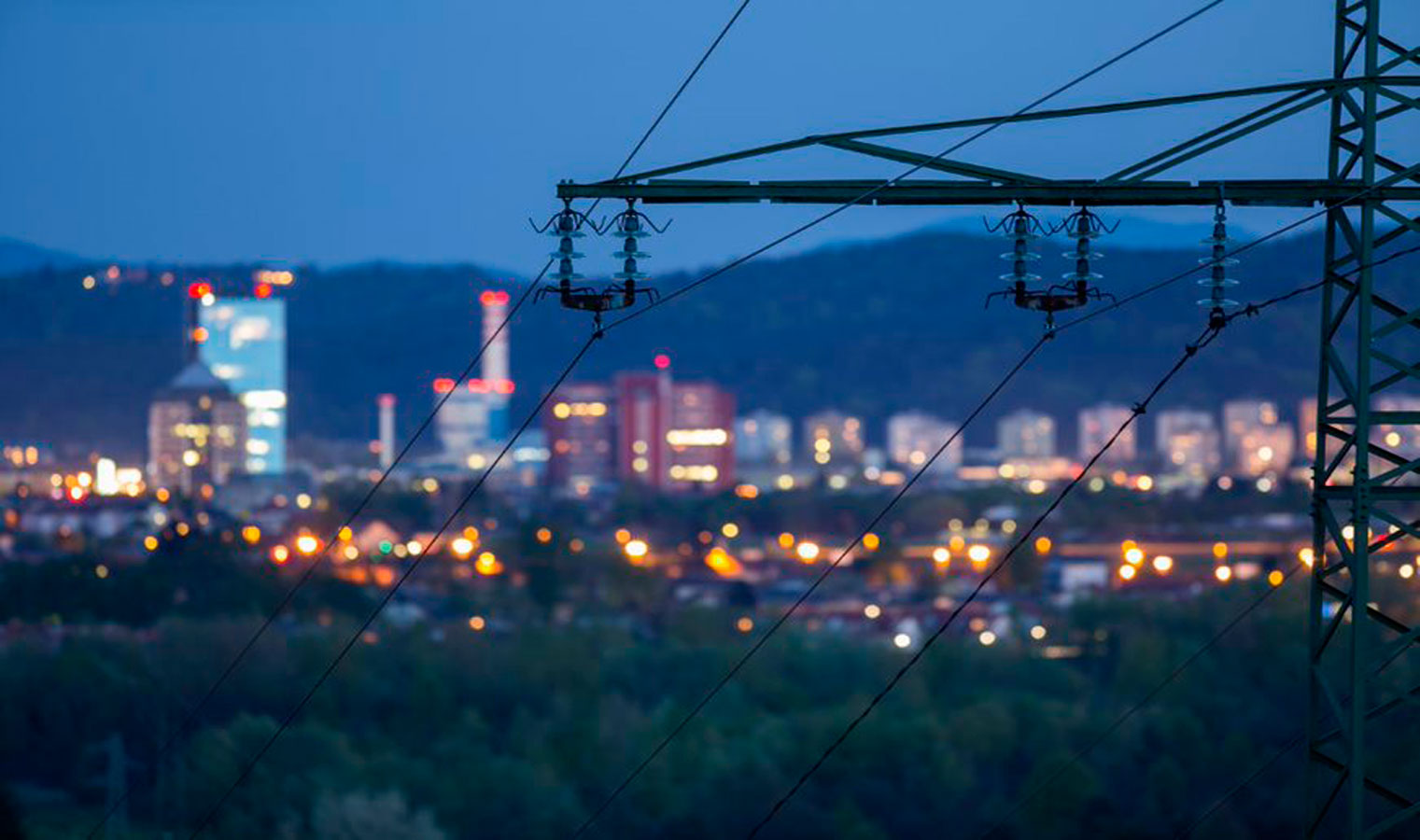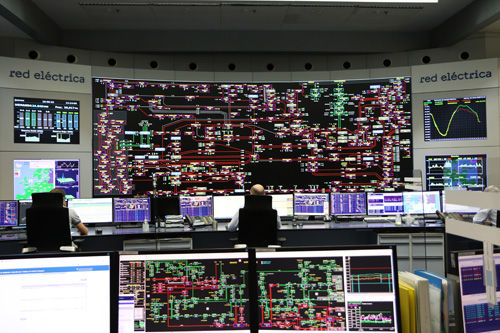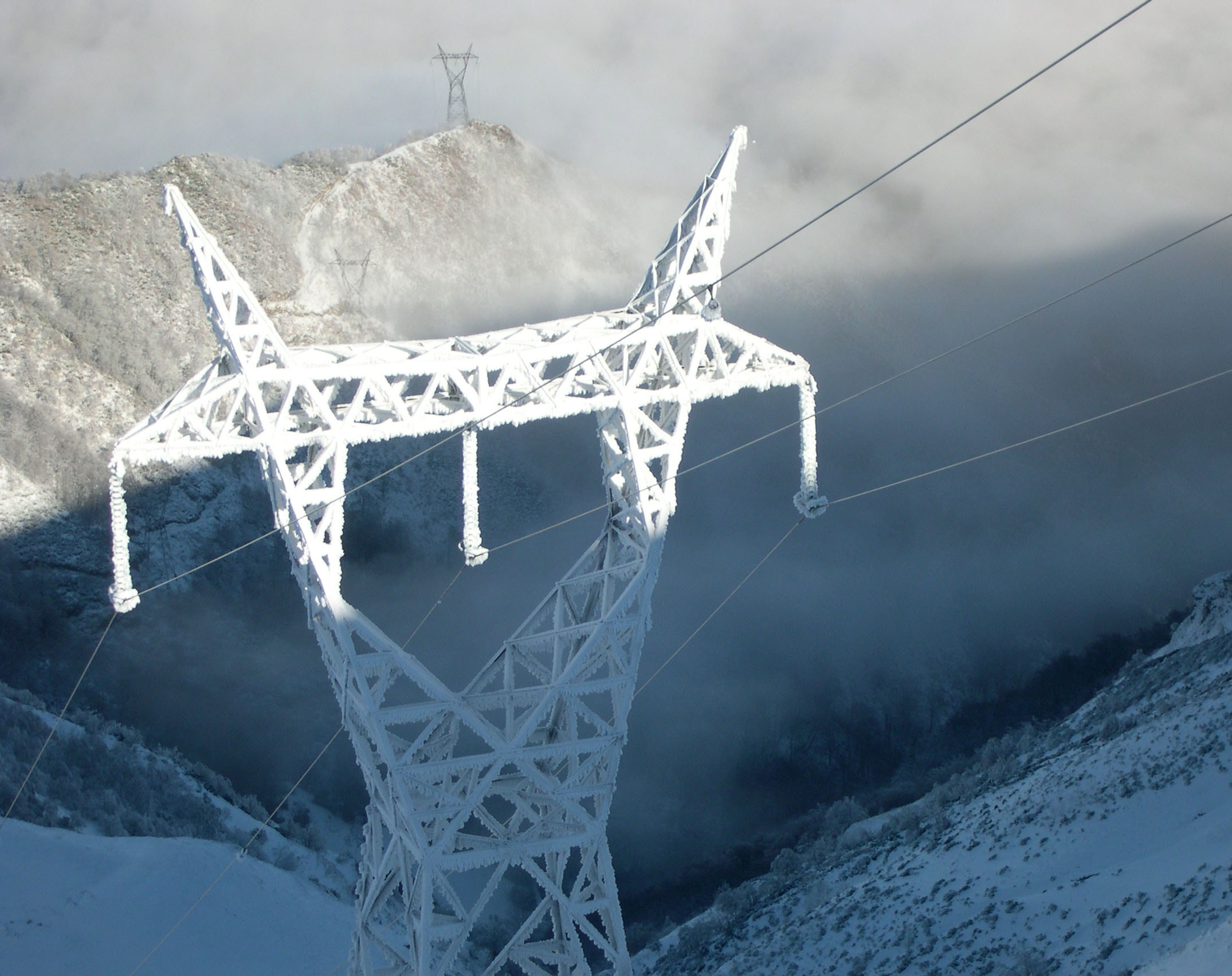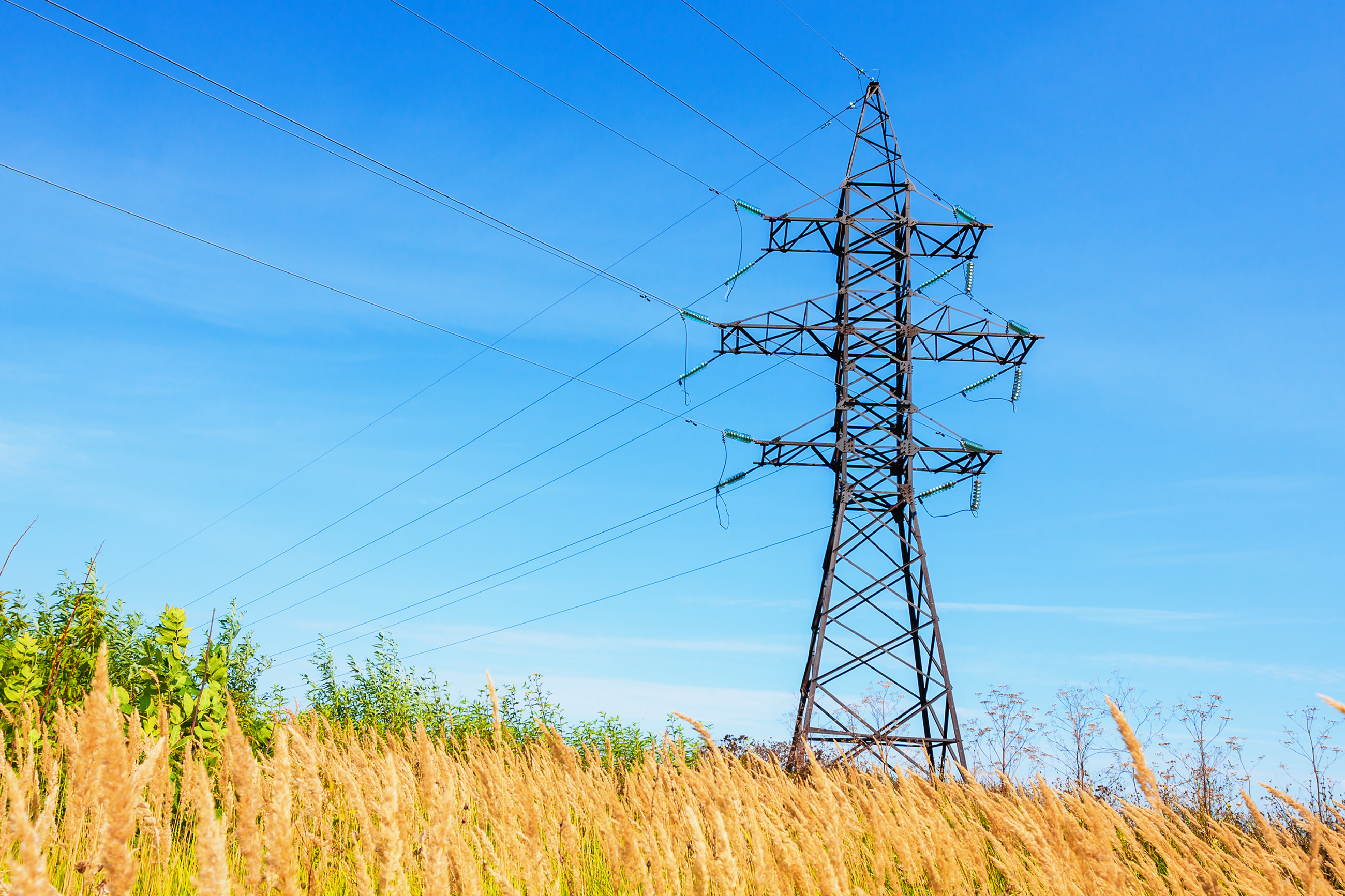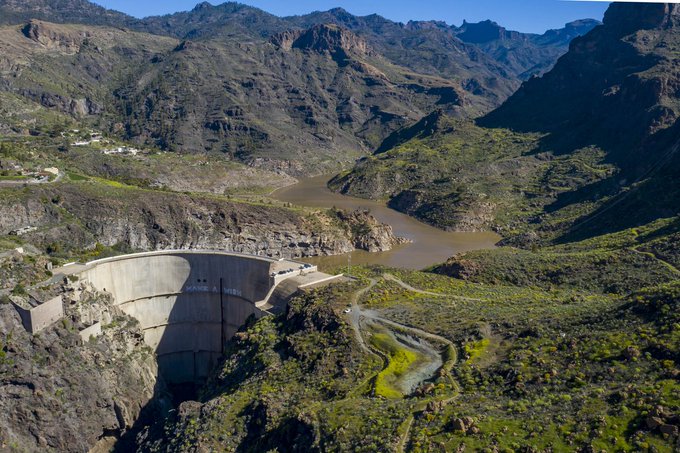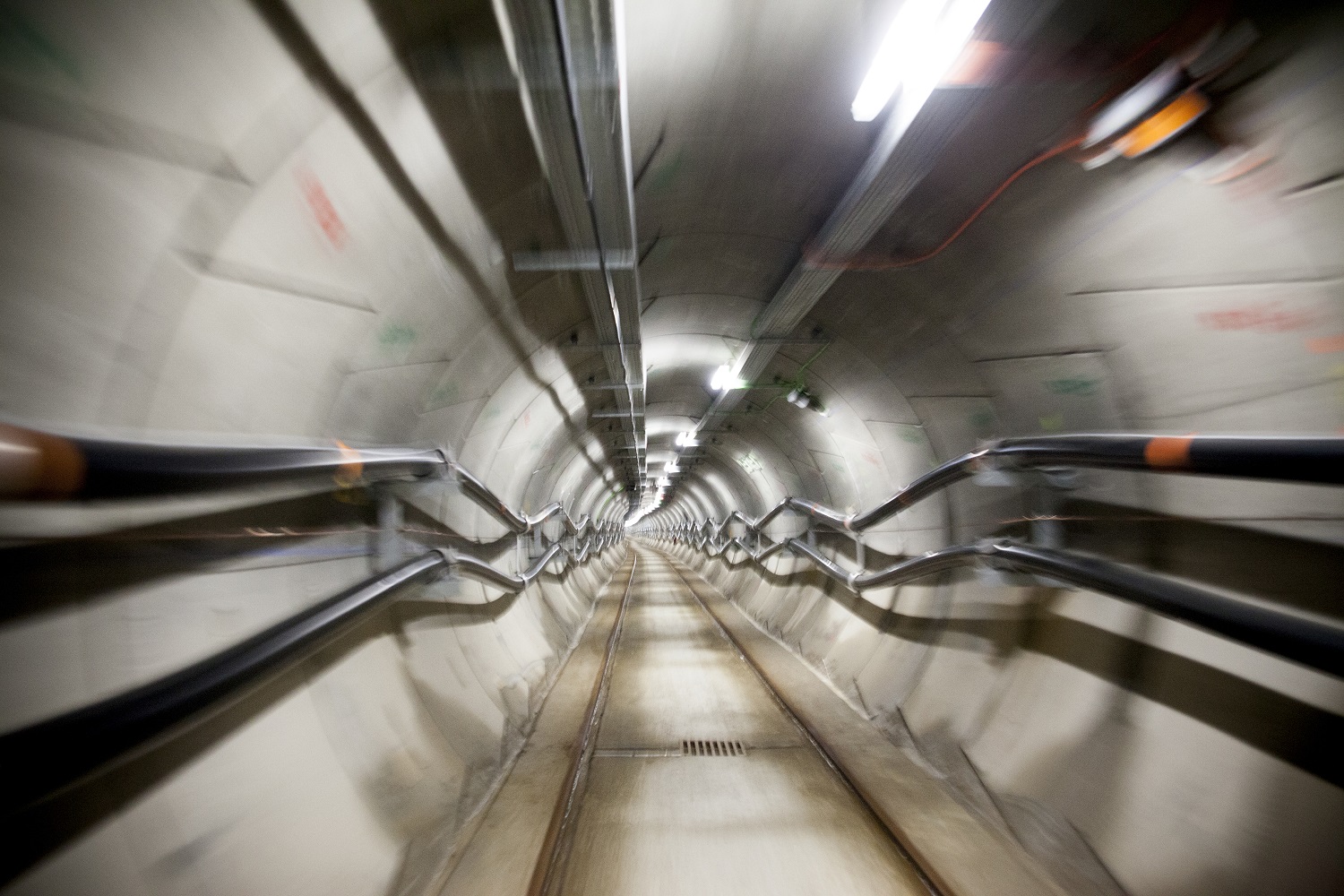Discover what Red Eléctrica is, what we do, and why we are the backbone of the electricity system in Spain and the ecological transition.
Red Eléctrica de España, the Balearic Government and IMEDEA present the monitoring and control programme The Marine Forest
- El IMEDEA efectuará, a lo largo de los cuatro próximos años, controles periódicos de la pradera de posidonia restaurada.
- Los trabajos de seguimiento de la plantación correspondiente a 2021 muestran que el porcentaje de supervivencia de los fragmentos de Posidonia oceanica plantados se mantiene por encima del 90%.
- La exposición virtual “Posidonia oceanica. Descubre los bosques sumergidos de una planta única en el Mediterráneo” quiere difundir el papel esencial de esta especie en el Mediterráneo y en las Baleares, donde se localizan 633 hectáreas.
Red Eléctrica de España, the Regional Ministry of the Environment and Territory of the Balearic Islands and the IMEDEA have presented today the planned control and monitoring programme that will be carried out over the next four years in Red Eléctrica's Marine Forest, a pioneering project carried out in the Bay of Pollensa for the restoration of two hectares of degraded Posidonia meadow. The event also featured the presentation of the virtual exhibition "Posidonia Oceanica. Discover the submerged forests of a unique plant in the Mediterranean", as well as an innovative international initiative, developed in the waters of Corsica, between French, Italian and IMEDEA research teams, to compare their respective experiences and techniques in the restoration of the species.
The event was attended by the Councillor for the Environment and Territory, Miquel Mir, the territorial delegate of Red Eléctrica in the Balearic Islands, Eduardo Maynau, and a researcher from IMEDEA, Jorge Terrados.
Over the next four years, IMEDEA will carry out an annual monitoring of the plantation, the first of which is currently being carried out, with a final consolidated evaluation at the end. This monitoring will include both the survival and vegetative development of the planted material as well as the evolution of the habitat and the biodiversity associated with the meadow. It should be noted that the first global evaluation of this project for the recovery of the Posidonia meadow in Majorca revealed a survival rate of more than 90% of the planted material. At present, as Jorge Terrados pointed out, "the REE Marine Forest continues to show encouraging results. We have started monitoring the plantation for the year 2021 and the survival rate of the fragments of Posidonia oceanica, some of which were planted more than three years ago, remains above 90%".
The control and monitoring work of the two hectares of restored Posidonia oceanica meadow in the Bay of Pollensa will be carried out by the Mediterranean Institute for Advanced Studies (IMEDEA-CSIC-UIB), following a prior agreement signed between Red Eléctrica and the CSIC. On the other hand, the Regional Ministry of the Environment and Territory and Red Eléctrica maintain the support and protection agreement for the project, signed in June 2017, which will be renewed once its term expires.
The IMEDEA will also be responsible for the environmental and educational aspects of the project, in the latter case through the "La Posidònia a l'aula" programme.
For its part, Red Eléctrica will finance this phase of the project with a contribution of 203,800 euros, which is in addition to the half a million euros provided to date for the development of the project.
Red Eléctrica's Marine Forest is a pioneering initiative, launched in 2018, which consists of the planting of 12,800 fragments of Posidonia using an innovative technique that includes the phases of collecting leaf bundles from the natural fragmentation caused by marine dynamics, the preparation of the specimens, planting and, finally, the subsequent monitoring and follow-up. This is the first plantation of an underwater forest of this size in the Mediterranean, a commitment to the future for the recovery and conservation of a species that is of vital importance in the preservation of marine ecosystems in the Mediterranean and in the fight against climate change, as it constitutes a reservoir of organic carbon. As Eduardo Maynau emphasised, "we are reaching the objectives we were aiming for, achieving a successful restoration through a replicable benchmark methodology that is also a living laboratory for the scientific community and that opens the way to good work in the field of environmental education".
Likewise, the councillor for the Environment and Territory, Miquel Mir, said he was "very satisfied with the collaboration of the Regional Ministry with a project that, year after year, demonstrates its great usefulness in the recovery of such a valuable habitat as the Posidonia meadows". Mir congratulated REE and IMEDEA for the results and for the internationalisation of the project. "Once again, the Balearic Islands are pioneers in environmental conservation. "It is essential that the administration and the scientific community continue to work hand in hand", he concluded.
A virtual exhibition for a plant that is unique in the world
The event included the presentation of the virtual exhibition, "Posidonia oceanica. Discover the submerged forests of a unique plant in the Mediterranean", promoted by Red Eléctrica with the collaboration of the Balearic Islands Government and under the technical coordination of IMEDEA.
This exhibition shows, in 3D and in an interactive way, the characteristics of Posidonia, where it is located, its living conditions, the legal protection it enjoys and the advice that citizens should follow to promote its preservation. There is also a section dedicated to The Marine Forest of the Bay of Pollensa which aims to disseminate the essential role of this species in the Mediterranean and in the Balearic Islands, where 633 hectares of Posidonia are located, compared to the 1,159 present on the Spanish coasts.
Visit the exhibition: “Posidonia oceanica. Discover the submerged forests of a unique plant in the Mediterranean” (open in Chrome).
Internationalisation
One of the objectives of Red Eléctrica's Marine Forest is for it to become a research centre, a living laboratory open to the national and international scientific community. One of the first results of this internationalisation is the RENFORC project, whose first work campaign has recently concluded in the waters of Corsica. Led by the University of Corsica, the initiative involves four groups of researchers who have already developed restoration techniques for the species: two Italians (Biosurvey, University of Palermo; ISSD International School for Scientific Diving, Sardinia), the French group Thalassa from the University of Nice and the IMEDEA team.
This pilot project was carried out in the waters of Sant Amanza Bay, in the Bouches de Bonifacio Nature Reserve in southern Corsica. In this area, which lost 16% of its meadow, the aim is to compare the effectiveness of the respective methodologies and, if necessary, to enable a unification of criteria, both in terms of the effectiveness of the same plantation and the operational efficiency in terms of execution time and costs. Regardless of the different planting techniques developed by each team, the main difference lies in the fact that, in the Marine Forest of the Bay of Pollensa, fragments of Posidonia rhizome from the marine dynamics have been used, without affecting the meadows, while the other teams obtain the fragments through extraction from donor plants.
